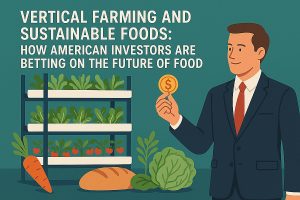In recent years, the importance of sustainability has escalated in shaping consumer decisions in the US. With a growing consciousness about environmental impact, people are increasingly integrating eco-friendly habits into their lives. This shift is influencing how individuals choose products and services, making sustainability a pivotal factor in the marketplace.
From buying organic foods to selecting renewable energy sources, the consumer landscape is evolving rapidly. Brands that embrace green practices are gaining popularity, and companies are rethinking their operations to align with this demand. Let’s explore how these changes are molding the marketplace and consumer behavior in the US.
Eco-Conscious Choices

Sustainability is increasingly becoming a primary factor in the decision-making process for many individuals. Consumers are more inclined to consider the environmental impact of their purchases, leading to a surge in demand for eco-friendly products. This trend is evident in various industries, from fashion to food.
For example, in the fashion industry, many consumers are opting for brands that offer sustainable clothing options made from organic or recycled materials. In the food sector, there is a noticeable shift towards purchasing organic, locally-sourced products that have a lower carbon footprint. This change is driven by a desire to support sustainable practices and reduce one’s ecological impact.
Impact on Fashion
The fashion industry is one of the most heavily impacted sectors when it comes to eco-conscious consumer decisions. Shoppers are now more aware of the environmental costs associated with fast fashion and are seeking alternatives. Sustainable fashion brands are gaining traction, offering clothing that not only looks good but also feels good morally.
These brands emphasize the use of sustainable materials, ethical production processes, and longevity of products. Clothes made from organic cotton, bamboo fibers, and recycled fabrics are becoming increasingly popular. Additionally, there is a growing trend towards second-hand shopping and upcycling, which helps reduce waste and promote circular economy principles.
By choosing sustainable fashion, consumers are demanding more transparency and accountability from brands. This shift is driving changes in the entire supply chain, from material sourcing to manufacturing and distribution, pushing the industry towards greener practices.
Food Industry Transformation
Sustainability is also significantly influencing the food industry. More consumers are prioritizing organic and locally-sourced food items to reduce their environmental footprint. The demand for plant-based products is another outcome of this trend, as people look for dietary options that are both health-conscious and eco-friendly.
Supermarkets and food producers are responding by offering a wider array of sustainable products. This includes not only organic fruits and vegetables but also sustainably sourced meat and dairy alternatives. Moreover, consumers are increasingly interested in how their food is produced, from farming practices to packaging.
Technological Influence
Technology plays a significant role in empowering consumers to make informed decisions. With the rise of apps and platforms dedicated to sustainability, individuals can easily access information about the environmental impact of their choices. This tech-savvy approach is making it easier for consumers to opt for greener alternatives.
Apps that rate products based on their sustainability credentials, offer tips on reducing waste, and incentivize eco-friendly purchases are contributing to more informed and conscious consumer behavior. These technological solutions provide transparency and enable consumers to compare products beyond traditional factors like price and brand.
Additionally, advancements in technology are helping companies to reduce their environmental impact. From efficient manufacturing processes to sustainable supply chains, innovation is at the forefront of driving a more sustainable economy. As technology continues to evolve, it will undoubtedly play an even more critical role in shaping consumer habits.
Energy and Sustainability
The move towards renewable energy sources is another example of how sustainability is impacting consumer decisions. More households in the US are adopting solar panels and other renewable energy solutions, not only to reduce their electricity bills but also to decrease their carbon footprint.
Consumers are becoming more energy-conscious and are actively seeking ways to reduce their energy consumption through energy-efficient appliances and smart home technologies. These choices reflect a growing commitment to sustainable living, driven by both environmental concerns and economic benefits.
Transportation Revolution
The automotive industry is experiencing a revolution as consumers shift towards more sustainable modes of transportation. The rising popularity of electric vehicles (EVs) illustrates this trend, as more people opt for cars that reduce greenhouse gas emissions and rely on clean energy sources.
Governments and automakers are supporting this transition with incentives, improved infrastructure, and innovative technology. Charging stations are becoming more accessible, and advancements in battery technology are making EVs a more viable option for everyday use.
Public transportation systems are also seeing upgrades to become more eco-friendly. Electric buses and bicycles, shared mobility services, and improved public transit options are all contributing to a greener transportation network. Consumers are driving this change by prioritizing sustainability in their travel choices.



